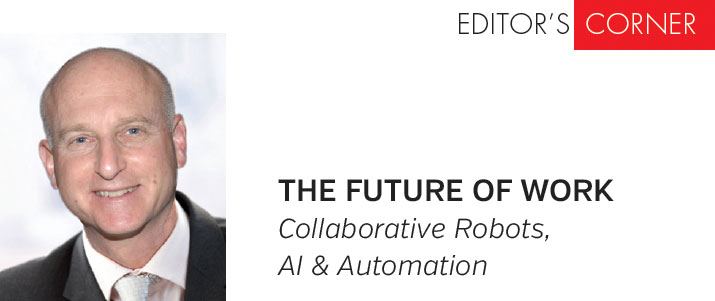
Recently, I tuned into an interesting discussion between Stephen Dubner of Freakonomics and David Autor, the M.I.T.
economist, about the future of work. The podcast “How to Stop Worrying and Love the Robot Apocalypse” is worth listening
to.
Much of their discussion centered on the potential of AI and robotics to collaborate with people and what that may mean
for businesses, employees and the nature of work in the future.
As we slide into 2025 with all its well-publicized uncertainties, it’s a sure bet that many, if not most, Furniture
World readers will accelerate their adoption of AI to automate marketing, merchandising, communications and operations
tasks. David McMahon outlines many of AI’s retail benefits in this November/December 2024 issue. It’s hard to believe
that it’s only been two years since ChatGPT launched. Since then, we’ve seen the introduction of a host of furniture
retail-specific AI-enabled software applications (visit HFA’s Retail Resource Center at the Vegas Market if you need an
update).
It’s interesting how much alignment there is between employee job satisfaction and the adoption of collaborative
technologies. In the podcast, Dubner and Autor discuss AI and flexible robots that work alongside human co-workers to
improve the work experience by handling repetitive, less pleasant and dangerous tasks. AI can gather business
intelligence and use data to make more informed decisions and ensure that necessary follow-up and intra-company
communications don’t fall through the cracks. In the near future, collaborative robots and assistive warehouse
technology that can both slide and lift will be hugely beneficial in warehousing and delivering big and bulky items.
Adopting AI and other collaborative technology is largely about achieving operational efficiency and serving customers
to gain a competitive advantage. However, the question of competitive advantage is nuanced. One solution does not fit
every home furnishing niche or every retailer’s optimal customer experience profile.
Should we stop worrying about a robot apocalypse? Maybe, maybe not. The wide range of possible outcomes depends on
whether technology is introduced in ways that deliver differentiated customer experiences while remaining consistent
with company goals, respecting employees, and promoting a positive future of work.
Wishing you good retailing,

Russell Bienenstock
Editorial Director/CEO
russ@furninfo.com